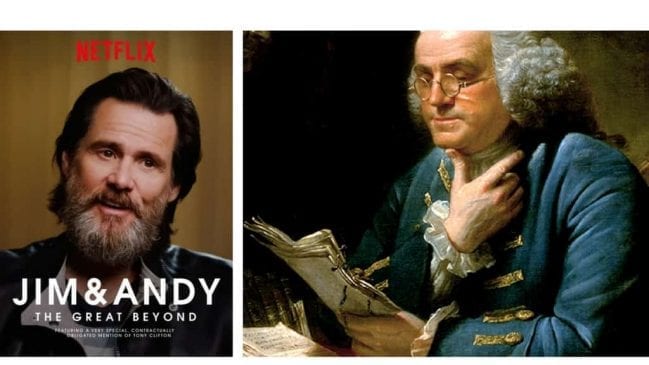Last week I read a book about Benjamin Franklin.
What an inspiring guy. He had this set of rules that guided his life: Ideals of how he wanted to live. It was simple things – nothing that raises eyebrows.
Eat in moderation. Don’t be wasteful. Be just (etc).
However, it was his approach to the rules that stuck with me.
He constantly failed at reaching his goals. But to him, that wasn’t the point.
He wrote:
“Tho’ I never arrived at the perfection I had been so ambitious of obtaining, but fell far short of it, yet I was, by the endeavor, a better and happier man than I otherwise should have been if I had not attempted it.”
Today, 292 years later, it seems that he was on the right track.
The common idea of setting up a grand goal that we hope to reach one day just isn’t very effective. [1, 2]
Instead, we want to set up a guiding star to take small steps toward every day. We don’t have to actually achieve our vision to be successful – it’s the process towards it that makes us successful.
Okay, so that was the first quote that stuck with me. Moving on.
I recently watched the documentary Jim & Andy (about Jim Carrey).
Jim revealed how his father had always wanted to make it as an actor in the USA. But he decided to take a safer path and stay in Canada, working as an accountant and raise a family.
However, he lost his job at 51. After that, he became bitter.
Jim said:
“Not only was he compromising to raise a family, but when you compromise and you fail, it really hurts. It hurts even more than failing at what you love.”
I learned that you can fail at what you don’t love, so you might as well do what you love.”
The entire documentary was great. It’s on Netflix and I recommend that you watch it!
I want to share a final quote that complements the two previous ones.
This one is from Ray Dalio, one of the world’s wealthiest people and author of the book “Principles”.
In that book, he writes:
“Time is like a river that carries us forward into encounters with reality that require us to make decisions. We can’t stop our movement down this river and we can’t avoid those encounters. We can only approach them in the best possible way.”
Often, we procrastinate important decisions in life. But after all, NOT doing something is a decision, too. Because we can not NOT make decisions – we might just as well try to make the best decisions possible.
I’m interested to hear your thoughts in the comments!
References:
1. Adams, S. (2014) How to Fail at Almost Everything and Still Win Big: Kind of the Story of My Life, New York: Portfolio.
2. Clear, J. (2014) Forget About Setting Goals. Focus on This Instead., Available at: http://jamesclear.com/goals-systems

Haha, My first thought was “maybe I shall get a horse after all”.
Can it feel harder to fail at what you NEED to do (because you see the consequenses of it) than it is to do what you LOVE to do, because then you have something to comfort you if you fail, the comfort beeing: that you stil Love to do this?
Philosophtical..! ?
Haha 🙂 Yeah, I think it can both be harder or easier to fail at what you need to do. Very much harder if you had to sacrifice doing what you loved for it, but if there’s no sacrifice involved I think it can feel better because you don’t care that much about it.
In medical school I heard a cardiologist describe how he had offered a woman the chance of a high risk but potentially life saving operation. He said ‘if you do not make a decision you will still have made a decision but you will have made it by default. Don’t make your decision by default’ I never forgot this.
Great example Deborah!